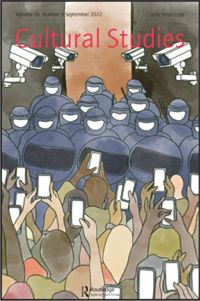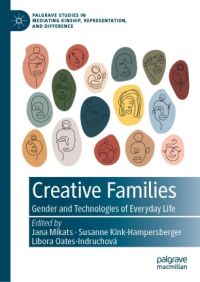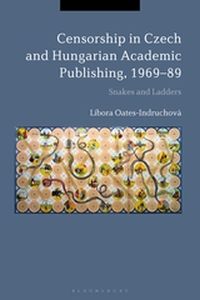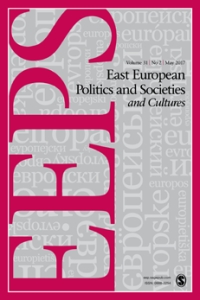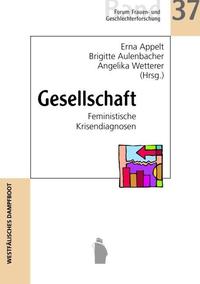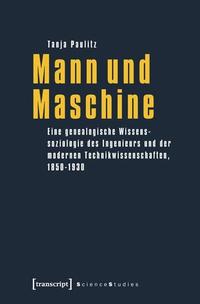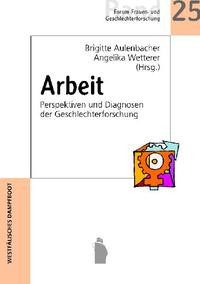Publikationen
Die Gesamtliste der Publikationen des Instituts, inklusive Zeitschriftenartikel, finden Sie hier
Ausgewählte Publikationen:
Oates-Indruchova, Libora and Jana Mikats (Eds.) (2022), Professional and Everyday Creativities: Gender, Improvisation, Meaning-making, Special issue of Cultural Studies 36(5)
Over the last two decades, theoretical discussions around creativity have turned around addressing existing dichotomies in its conceptualization such as professional/everyday and public/private, to mention the two most relevant to the theme of this special issue. Cultural studies have been critical of approaching creativity in terms of individual talent and the elite („creative class“), in economic terms („creative industries“) or in terms of exclusive locations („creative city“). In addition, scholars within gender studies have pointed out that definitions of creativity tend to exclude activities typically practised by women. Some of the most forceful rearticulations of creativity have drawn on Raymond Williams’s notion of „common culture“ and Michel de Certeau’s theorization of „practices of everyday life“ to look for creative practices beyond the economic context and instead emphasize community- based aspects of creativity, its cultural specificity and quotidian locations („vernacular creativity“). Interest in the communicative and social dimensions of creativity has also been fuelled by technological advances and the blurring of the boundaries between producers and consumers of new media („convergent culture“). This special issue aims to examine current debates on creativity explicitly from the perspective of gender and to enrich our understanding of gender-based creative practice with new areas and reconfigurations of meaning-making. The special issue is divided into two parts or „clusters“. The first cluster of articles addresses the divides between the professional/amateur and economic/non-economic gain, looking in turn at professional, convergent and everyday creativities. Central to the articles in the second cluster are the concepts of connecting either with the self or with a community, often by means of improvisation forced by circumstances and/ or by the crafting of identity as a creative practice. Additionally, the first cluster is followed by an „exhibition“ of the work by the Irish artist Jennifer Walshe, whose themes resonate in various ways across the two clusters.
Mikats, Jana, Susanne Kink-Hampersberger and Libora Oates-Indruchova (Eds.) (2021), Creative Families: Gender and Technologies of Everyday Life, Palgrave Macmillan
This edited collection brings together two strands of current discussions in gender research through the concept of creativity. First, it addresses creativity in the context of the family, by exploring changing and newly emergent family forms and ways of creating and maintaining intimate relationships. Creativity here is understood not as just „newness or originality“, but as that which, in the words of Eisler and Montouri (2007), „supports, nurtures, and actualizes life by increasing the number of choices open to individuals and communities.“ One aim of this book, therefore, is to investigate the social, collaborative, and creative interactions in contemporary family and kin formations in Europe. Second, the volume examines how new media and technologies are entering and shaping everyday family lives. Technological transformations and adaptions have not only enabled the creation of new forms of families and ways of family living, but also challenged the established constellations of gender and family arrangements. The present volume addresses these issues from multiple perspectives and in different contexts, and explores the involvement of different actors. By problematizing the creativity of becoming and „doing“ family and kinship, the authors acknowledge the increasing fluidity of gender identities, the evolving diversity of relationships, and the permeation of technology into daily life.
Oates-Indruchová, Libora (2020), Censorship in Czech and Hungarian Academic Publishing, 1969-89: Snakes and Ladders, Bloomsbury Academic
How did writers convey ideas under the politically repressive conditions of state socialism? Did the perennial strategies to outwit the censors foster creativity or did unintentional self-censorship lead to the detriment of thought? Drawing on oral history and primary source material from the Editorial Board of the Czechoslovak Academy of Sciences and state science policy documents, the book explores to what extent scholarly publishing in state-socialist Czechoslovakia and Hungary was affected by censorship and how writers responded to intellectual un-freedom.
Divided into four main parts looking at the institutional context of censorship, the full trajectory of a manuscript from idea to publication, the author and their relationship to the text and language, this book provides an insight into the ambivalent beneficial and detrimental effects of censorship on scholarly work from the Prague Spring of 1968 to the Velvet Revolution of 1989.
Censorship in Czech and Hungarian Academic Publishing, 1969-89 also brings the historical censorship of state socialism into the present, reflecting on the cultural significance of scholarly publishing in the light of current debates on the neoliberal academia and the future of the humanities.
Oates-Indruchová, Libora und W. Mueller (Gasteditoren), EEPS East European Politics and Societes and Cultures 31, 2 (2017), Sage Journal
darin: "From the Iron Curtain to the Schengen Area: Memory Cultures of Bordering Communist and Postcommunist Europe", S. 227-233. LINK
Havelková, Hana und Libora Oates-Indruchová (Hg.) (2014), The Politics of Gender Culture under State Socialism, Routledge
Though there has been much research on the incomplete emancipation project of state socialism in East and Central Europe, very little has been published on how the state and its institutions conceived of gender as a concept. This book seeks to understand if and how this conceptualization developed in the second half of the twentieth century, and what impact it had on everyday life and on culture. This study moves beyond the dichotomous gender perspectives and towards a nuanced understanding of the diverse discursive negotiations, agendas, actors and agency involved in state-socialist gender practices. Including a detailed case study on Czechoslovakia, contributors explore these issues in a series of independent, but collaboratively developed studies, placing their research in the context of other East Central European countries. The studies collected in the volume bring to light fresh material and consider it from the combined perspective of current gender theory and internal ideological dynamics of state socialism, breaking new ground in gender theory, cultural theory and studies of state socialism.
Appelt, Erna, Brigitte Aulenbacher und Angelika Wetterer (Hg) (2013), Gesellschaft – feministische Krisendiagnosen. Forum Frauen- und Geschlechterforschung, Band 37, Westfälisches Dampfboot
Gesellschaftliche Naturverhältnisse, Lebenssorge und Ökonomie, Öffentlichkeit und Privatheit, Normierungen und Ideologien – mit diesen vier Schwerpunkten des Buches sind traditionsreiche Felder feministischer Forschung benannt, die gegenwärtig unter dem Vorzeichen der krisenhaften Erschütterungen der Gesellschaft in uneindeutiger Weise in Bewegung geraten sind: Tradierte Herrschaftsverhältnisse und –gefüge sind aufgebrochen, emanzipatorische Tendenzen stehen im Widerstreit mit der Konsolidierung von Herrschaft. In ihren Krisendiagnosen untersuchen die Autor_innen die verschiedenen Felder und fragen nach grundlegenden gesellschaftlichen Zusammenhängen, nach aktuellen Krisenerscheinungen und ihren Ursachen sowie nach den Wirkungen, die sie für das Geschlechterverhältnis und weitere soziale Ungleichheiten haben.
Es schreiben: Erna Appelt, Brigitte Aulenbacher, Ursula Birsl & Claudia Derichs, Sabine Hark & Mike Laufenberg, Cornelia Klinger, Ilse Lenz, Beate Littig, Max Preglau, Birgit Riegraf, Birgit Sauer, Elvira Scheich, Vandana Shiva und Angelika Wetterer.
Paulitz, Tanja (2012), Mann und Maschine. Eine genealogische Wissenssoziologie des Ingenieurs und der modernen Technikwissenschaften, 1850-1930, Transcipt Verlag.
Die Herausbildung der modernen Technikwissenschaften vollzog sich nicht zuletzt auch als ein Diskurs über Männlichkeiten. Dass dieser weitaus brüchiger verlief als gemeinhin angenommen, macht dieses Buch deutlich. In einer wissenssoziologischen Analyse werden unterschiedliche diskursive Praktiken der Vergeschlechtlichung rekonstruiert: Diese pendeln zwischen der Neutralisierung des Ingenieurs als »Vernunftwesen« und der Naturalisierung ursprünglich männlicher Produktivität. Entworfen wird einmal der rationale Maschinenwissenschaftler, ein andermal der begabte Mann der Tat – Männlichkeitsbilder, von denen auch das genuine Grundlagenwissen der Technik, wie die technische Mechanik und die Maschinentheorie, nicht unberührt geblieben sind.
Aulenbacher, Brigitte und Angelika Wetterer (Hg.) (2009/2012), Arbeit. Perspektiven und Diagnosen der Geschlechterforschung, Westfälisches Dampfboot
„Doing gender while doing work“ – in dieser für die Geschlechterforschung zentralen Perspektive wird nicht nur danach gefragt, wie die Arbeitsteilung zwischen den Geschlechtern organisiert und legitimiert wird, sondern wie zugleich die binäre und asymmetrische Geschlechterklassifikation selbst hervorgebracht und reproduziert wird. Gleichzeitig thematisiert die Geschlechterforschung mit der Organisation von Arbeit zugleich die Verfasstheit und die Entwicklungen vergangener und gegenwärtiger Gesellschaft(en). Anders als in anderen Forschungssträngen wird Arbeit dabei nie nur unter dem Primat der Erwerbsarbeit analysiert, sondern mit Blick auf alle Formen bezahlter und unbezahlter Arbeit.
Das Buch gibt einen Überblick über die für die Geschlechterforschung grundlegenden theoretischen Konzeptualisierungen von Arbeit und Geschlecht, stellt aktuelle Forschungsfelder vor und verbindet diese mit Sozial- und Zeitdiagnosen. Klassische Themen wie „Arbeit und Liebe“ oder „Arbeitsteilung und Geschlechterungleichheit“ finden dabei ebenso Berücksichtigung wie aktuelle Phänomene wie Prekarisierung und die (inter)nationalen Verwerfungen in den Arbeitsverhältnissen.
Wetterer, Angelika (Hg.) (2010), Körper Wissen Geschlecht. Geschlechterwissen und soziale Praxis II., Ulrike Helmer Verlag
Soziologie und Geschlechterforschung haben in den letzten Jahren neue Perspektiven auf die Beziehung zwischen Körper, Wissen und Geschlecht entwickelt. Stand lange das Wissen über den Körper und seine soziale Bedeutung im Mittelpunkt, so ist der Fokus heute auf inkorporierte Formen von Geschlechterwissen gerichtet, auf Körperpraktiken und "eingefleischte" Handlungsroutinen, die die Ordnung der Geschlechter gleichsam in eigener Regie (re-)produzieren oder in Bewegung bringen. Die Beiträge des Buches greifen diese Überlegungen auf und fragen danach, wie Wissen vom Körper, Wissen im Körper und Wissen, das über den Körper zirkuliert, in der sozialen Praxis miteinander verschränkt sind.
Es schreiben Corinna Bath, Eva Flicker, Cornelia Helfferich, Gabriele Klein, Diana Lengersdorf & Mona Motakef, Elisabeth List, Katharina Miko & Karin Sardadvar, Rosa Reitsamer, Lisa Scheer, Imke Schminke, Paula-Irene Villa und Angelika Wetterer.
Aktuelle Aufsätze
Malli, Gerlinde und Susanne Sackl (2013), Interaktionsdynamiken in Expert_inneninterviews. Methodische Herausforderungen im Kontext der Hochschulforschung. In: Kristina Binner, Bettina Kubicek, Anja Rozwandowicz und Lena Weber (Hg.), Die unternehmerische Hochschule aus der Perspektive der Geschlechterforschung. Zwischen Aufbruch und Beharrung, Münster: Dampfboot Verlag, 105-115.
Paulitz, Tanja (2012), Hegemoniale Männlichkeiten‘ als narrative Distinktionspraxis im Wissenschaftsspiel. In: Österreichische Zeitschrift für Soziologie, Heft 37 (1), 45-64.
Moebius, Stephan und Angelika Wetterer (Hg) (2011), Symbolische Gewalt. Themenschwerpunktheft der Österreichischen Zeitschrift für Soziologie, Heft 4. Wiesbaden: VS Verlag, 1-10.
Wetterer, Angelika (2009), Gleichstellungspolitik im Spannungsfeld unterschiedlicher Spielarten von Geschlechterwissen. Eine wissenssoziologische Rekonstruktion. In: Gender. Zeitschrift für Geschlecht, Kultur und Gesellschaft, 2009 (2), 45-60.
Katharina Scherke
InstitutsleiterinGabriele Strohmeier
InstitutssekretariatKarl-Franzens-Universität Graz
Universitätsstraße 15/G4
8010 Graz
Mittwoch 14.00-16.00 Uhr*
*An lehrveranstaltungs- und prüfungsfreien Tagen ist Mittwochnachmittag geschlossen.

